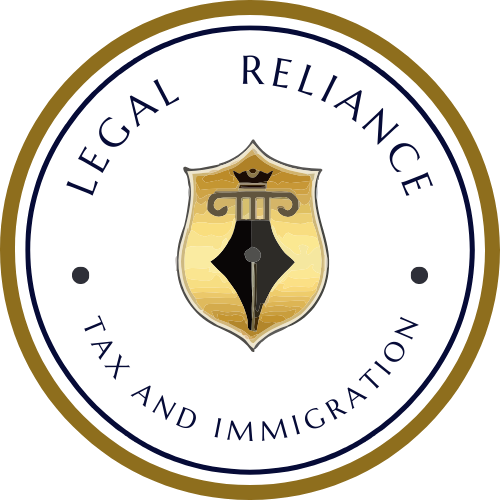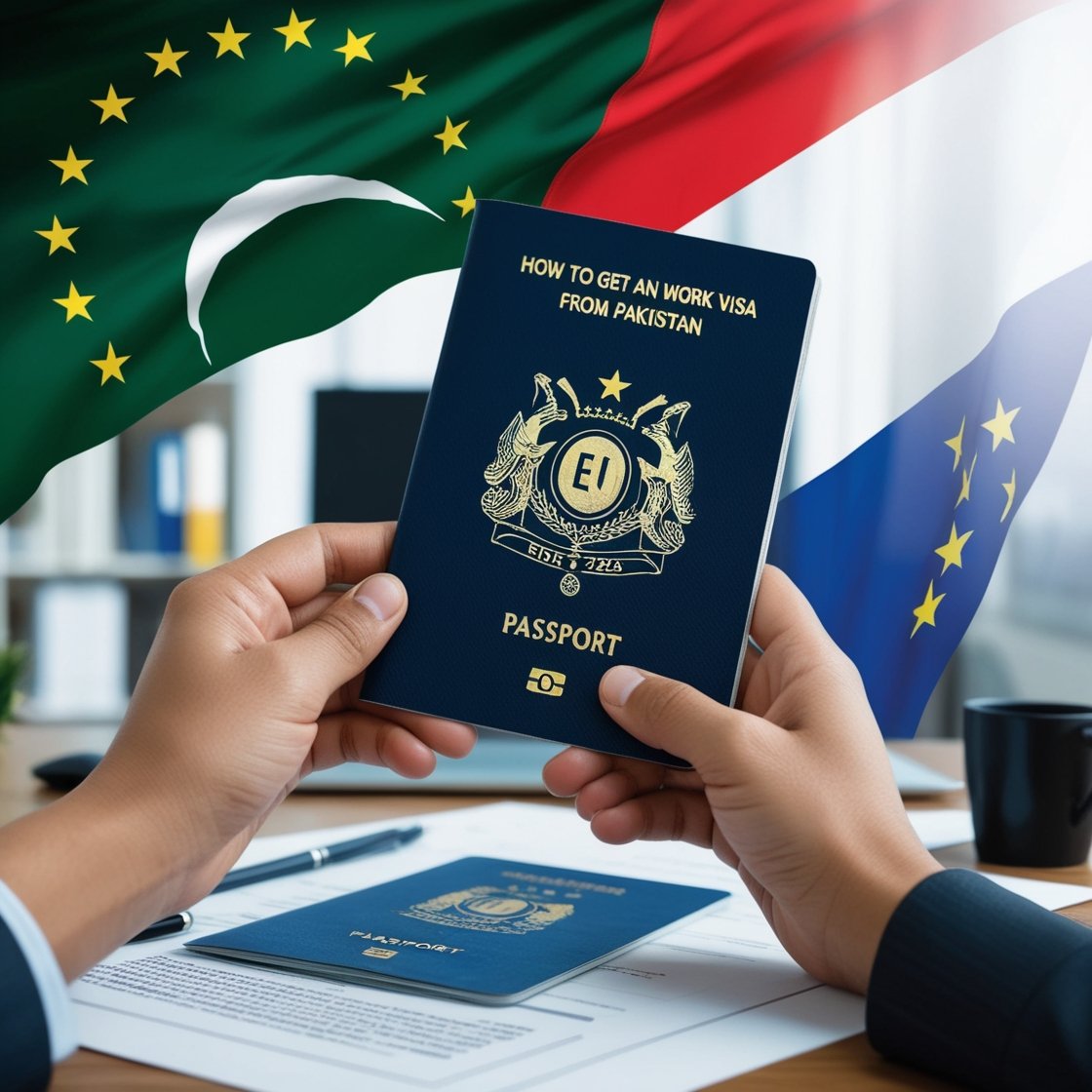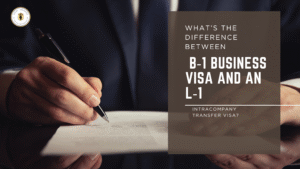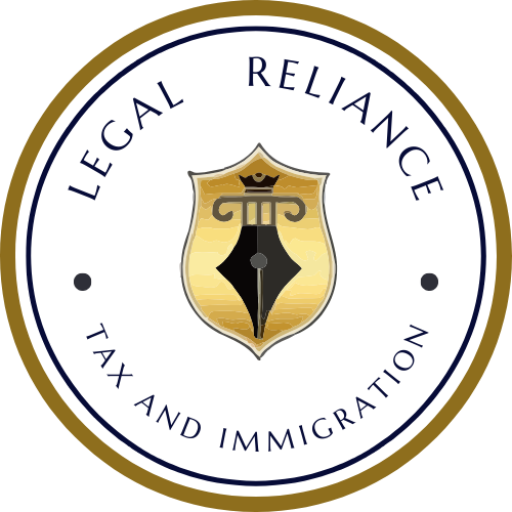Have you been thinking about working in Europe? For Pakistani nationals, the EU offers a range of work visa options that allow you to live and work legally across various European countries. With diverse employment opportunities and high living standards, the EU is a popular destination for skilled professionals, trade workers, and recent graduates.
Why Work in the EU: Key Benefits for Pakistani Nationals
Working in the EU comes with attractive benefits that appeal to many Pakistanis. Europe is known for high-quality healthcare, job security, and an overall strong standard of living. Not only can you benefit from global work experience, but you’ll also gain exposure to different cultures, languages, and professional networks.
Understanding EU Work Visas and Types Available
Several EU countries offer specific work visas designed to attract international talent. Here are some popular options:
1. EU Blue Card
This is the most common work permit for skilled professionals. It’s accepted in over 25 European countries and is often seen as the easiest route for qualified professionals.
2. Skilled Worker Visa
Several EU nations have introduced skilled worker visas for jobs in fields like healthcare, engineering, and IT. Countries like Germany and Austria have a strong demand for skilled professionals.
3. Temporary Work Visa
For individuals looking to work in seasonal or temporary roles, countries like Spain and Italy offer temporary work visas in agriculture and tourism sectors.
Eligibility Requirements for EU Work Visas
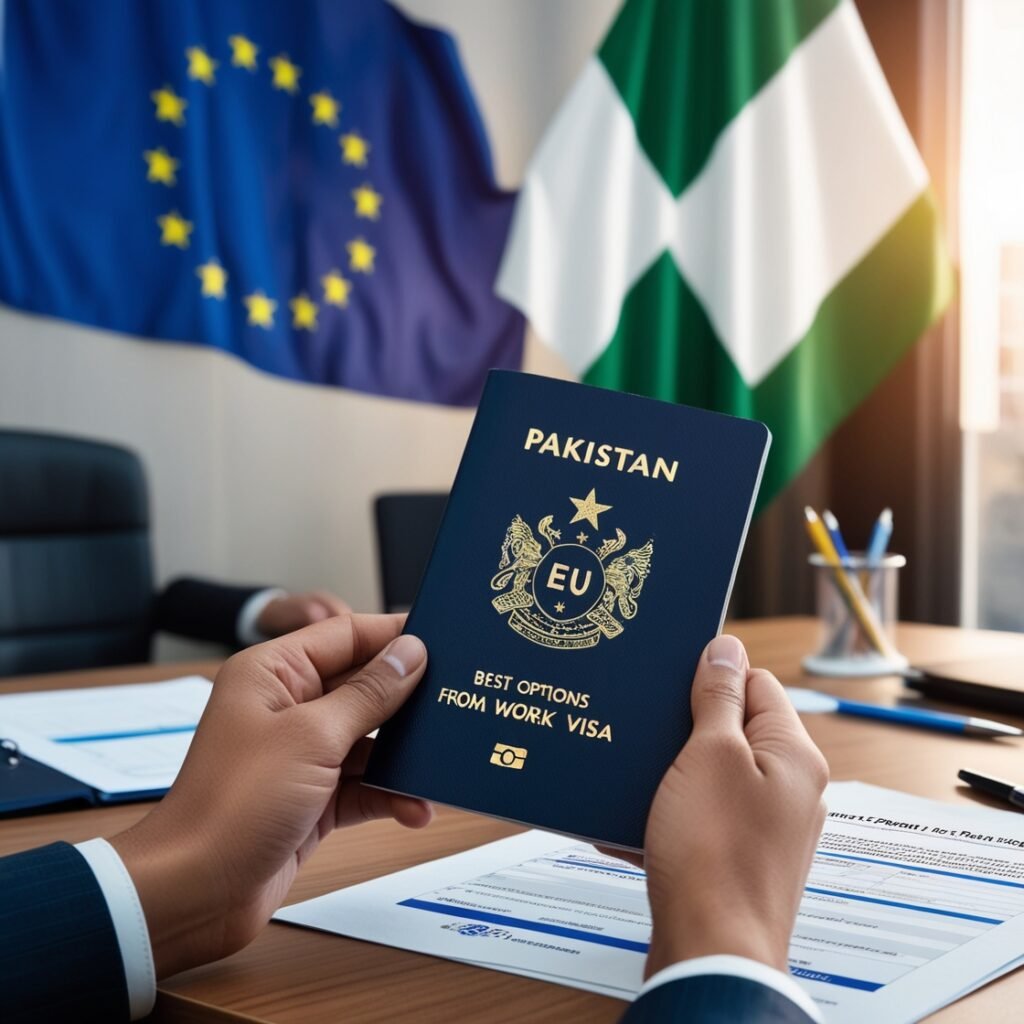
To qualify for an EU work visa, you generally need:
- Educational Qualifications: Proof of qualifications or experience, especially for skilled visas.
- Job Offer: In most cases, an official job offer from an EU employer is required.
- Financial Proof: Demonstrate that you can support yourself without relying on public funds.
- Language Proficiency: Depending on the country, you may need to prove language skills (like German or English).
Top EU Countries Offering Work Visas to Pakistanis
Each EU country has its own work visa policies and job opportunities. Some of the best options for Pakistanis are:
- Germany: Known for the EU Blue Card, it’s a top destination for tech, engineering, and healthcare.
- Netherlands: With a high demand for skilled workers, it’s popular for IT and agriculture roles.
- Sweden: With an open job market and competitive salaries, Sweden is ideal for skilled workers.
- Poland: Known for opportunities in construction, logistics, and factory work.
Step-by-Step Guide to Applying for an EU Work Visa
The EU work visa process generally follows these steps:
- Research Visa Types: Start by selecting the visa type that fits your skills.
- Secure a Job Offer: Most EU countries require a job offer before applying for a visa.
- Collect Required Documents: Gather all necessary documents, including your job offer, passport, and qualifications.
- Submit Visa Application: Apply online or through the relevant EU embassy.
- Attend Interview: Some visa types may require an in-person interview.
- Receive Decision: Wait for your visa decision, which varies by country.
Document Checklist for EU Work Visa Application
To ensure a smooth application process, have these documents prepared:
- Passport: Valid for at least six months beyond your planned stay.
- Job Offer Letter: Proof of employment in the EU.
- Proof of Qualifications: Diplomas, certificates, and other credentials.
- Financial Statements: Evidence of sufficient funds.
- Proof of Language Proficiency: Test results, if required by the country.
Navigating the Work Visa Interview Process
If required, the interview will focus on your professional experience, your motivations for moving to the EU, and how you plan to support yourself. The key is to be prepared, confident, and transparent about your intentions.
Tips for a Successful EU Work Visa Application
Here are some tips to increase your chances of approval:
- Research Each Country’s Requirements: Each EU country has unique requirements, so make sure to follow the guidelines.
- Be Thorough with Documents: Incomplete applications are a common reason for rejections.
- Prepare for the Interview: Practice answering questions confidently and honestly.
- Seek Help if Needed: Consult a professional if you need guidance on documentation or the process.
Visa Processing Times and Fees
Processing times vary depending on the visa type and country. For instance, the EU Blue Card typically takes 4-12 weeks to process. Visa fees also vary, but expect costs to range from €70 to €150 depending on the country and visa type.
Life in the EU: What to Expect as a Pakistani Worker
Living in the EU as a Pakistani worker comes with a unique set of experiences. Expect to meet people from diverse backgrounds, enjoy strong work-life balance, and access high-quality healthcare. While adapting to a new culture can be challenging, the exposure and opportunities you gain can greatly enhance your professional journey.
Frequently Asked Questions (FAQs)
1. Can I bring my family on an EU work visa?
Yes, most EU work visas allow you to bring dependents like your spouse and children.
2. Do I need to learn the local language to get a job in the EU?
Language requirements vary. For example, in Germany, knowing German can be beneficial, while English may be sufficient in the Netherlands.
3. How long does it take to process an EU work visa?
Processing times vary by country and visa type but generally range from 4-12 weeks.
4. Can an EU work visa lead to permanent residency?
Yes, many EU work visas offer pathways to permanent residency after a set period of lawful residence.
5. Do I need a job offer to apply for an EU work visa?
Most EU work visas require a valid job offer from an employer in the EU before you apply. Contact us
